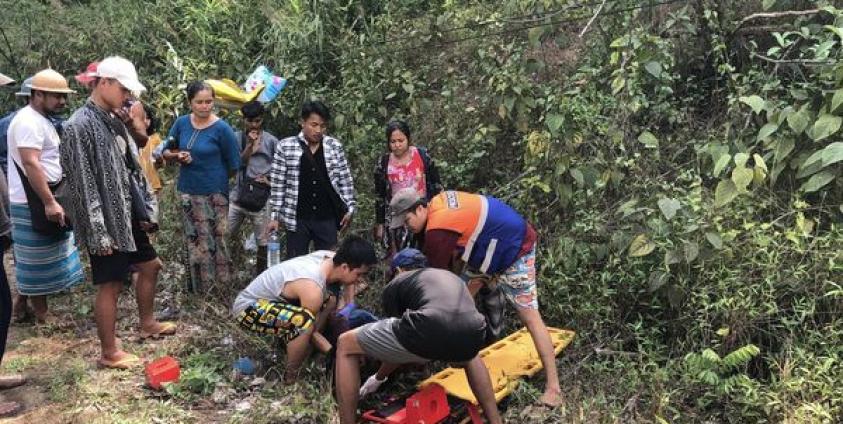Data gathered by Than Lwin Times revealed that landmines and cluster munitions claimed the lives of 7 civilians and caused injuries to at least of 31 others in Mon State in 2023.
Throughout the year, there were almost 20 instances of landmine explosions in townships marked by intense military conflicts, including Kyaikto, Bilin, Thaton, and Ye. Among these, Kyaikto Township recorded the highest frequency of landmine explosions, occurring eight times.
Landmines caused the tragic loss of 7 lives, including three 12-year-old children, and inflicted injuries on 31 individuals, including 4 women in Kyaikto and Thaton townships.
The majority of landmine explosions took place in proximity to orchards, rubber plantations, inter-village routes, and notably, in the post-coup period, blasts also occurred along the Yangon-Mawlamyine and Mawlamyine-Ye union roads.
In the aftermath of the Military Council's coup, landmine threats have surged in Mon State, creating hardships for rural communities engaged in farming and plantations, thereby affecting overall livelihoods.
Than Lwin Times confirmed that the majority of landmine explosions occurred in the vicinity of Military Council bases and areas where Junta troops had operated, but subsequently withdrawn.
According to the International Campaign to Ban Landmines (ICBL), Russia the US China and Myanmar
have all refused to back the Ban and still deploy landmines.
Since 1999, the Myanmar Military has been utilizing landmines, and following the coup in February 2021, there has been a notable escalation in the use of these munitions, placing Myanmar among the countries employing them most extensively, as reported by the Human Rights Watch Network.
The United Nations International Children's Emergency Fund (UNICEF) released its half-year report for 2023, revealing that nearly 600 civilians in Myanmar were killed by landmines and cluster munitions.







